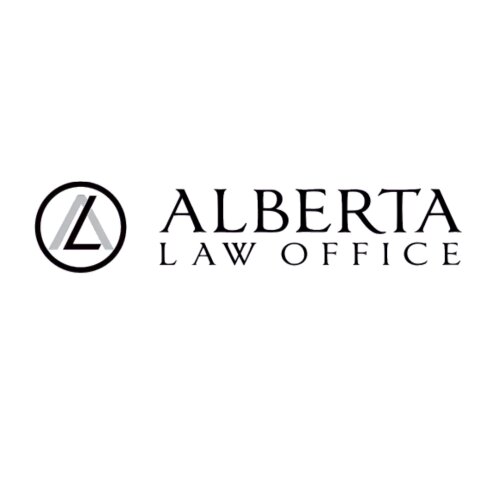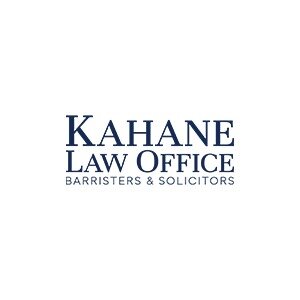Best Conveyancing Lawyers in Edmonton
Share your needs with us, get contacted by law firms.
Free. Takes 2 min.
Free Guide to Hiring a Real Estate Lawyer
List of the best lawyers in Edmonton, Canada
About Conveyancing Law in Edmonton, Canada
Conveyancing refers to the legal process of transferring the ownership of real estate from one person or entity to another. In Edmonton, and throughout Alberta, conveyancing is a critical part of buying, selling, or refinancing property. The process ensures that all documents are properly prepared, reviewed, and registered, while also making sure that funds are exchanged securely and lawful ownership is established. Local laws, regulations, and municipal procedures must all be adhered to during conveyancing, making legal guidance essential for a smooth transaction.
Why You May Need a Lawyer
Engaging a lawyer for conveyancing in Edmonton is highly recommended for several reasons. Property transactions can be complex, involving significant legal and financial stakes. A lawyer is particularly necessary when:
- You are buying or selling residential or commercial property
- Title to the property is unclear or contains encumbrances
- You are involved in a private sale without a real estate agent
- The property is part of an estate or a divorce settlement
- Issues arise during the transaction, such as disputes over boundaries or unpaid property taxes
- Mortgages, liens, or caveats are registered on the property
- You wish to refinance an existing property or add/remove names from the title
Having a lawyer ensures that all legal requirements are met, your rights and interests are protected, and avoidable mistakes are prevented.
Local Laws Overview
Conveyancing in Edmonton is governed by Alberta’s real estate laws, which are primarily outlined in statutes such as the Land Titles Act, Law of Property Act, and regulations enforced by Service Alberta. These laws dictate how titles are transferred, registered, and how any interests or claims against property are handled. Transactions are recorded with the Land Titles Office in Alberta, which maintains the Torrens title registration system, ensuring the accuracy and security of land ownership records.
Local bylaws and municipal requirements may also affect conveyancing, such as zoning regulations, property taxes, and utility accounts. Compliance with both provincial and municipal rules is crucial for a successful property transaction in Edmonton.
Frequently Asked Questions
What is conveyancing?
Conveyancing is the legal process of transferring property ownership from one party to another, typically involving review of legal documents, title search, payment arrangements, and registration with the Land Titles Office.
Do I need a lawyer to buy or sell a home in Edmonton?
Yes, Alberta law requires lawyers to complete many of the legal steps in the conveyancing process, including drafting and registering transfer documents and managing trust funds.
How long does the conveyancing process take?
Most residential transactions are completed within 30 to 60 days after signing a purchase contract, but timelines can vary based on complexity and responsiveness of all parties involved.
What is a title search and why is it important?
A title search uncovers the property’s legal history and any encumbrances, liens, or claims that may affect ownership. This ensures the seller has the right to transfer the property and the buyer receives clear title.
What are typical costs involved in conveyancing?
Costs include legal fees, property taxes (if applicable), land title registration fees, and disbursements for searches and certificates. Your lawyer can provide a detailed cost estimate.
Can I do my own conveyancing in Edmonton?
While possible in limited situations, it is strongly discouraged due to the complex legal requirements and potential for costly mistakes. Most financial institutions and buyers require lawyer involvement.
What happens on the possession day?
On possession day, the lawyer releases funds to the seller, registers the transfer at the Land Titles Office, and ensures the buyer receives title and keys to the property.
What if there are problems with the property title?
If a title issue is discovered, such as an unpaid lien, it must be resolved before closing. Your lawyer will work with the parties involved to address and clear any issues before completion.
What documents are involved in conveyancing?
Key documents include the purchase agreement, transfer of land, mortgage documents, Real Property Report, and various affidavits, depending on the specifics of the transaction.
Can a lawyer help if there is a dispute after closing?
Yes, your lawyer can assist in resolving post-closing disputes, including those relating to unpaid taxes, property defects, or outstanding encumbrances.
Additional Resources
For further information and assistance in Edmonton, the following organizations and bodies are helpful:
- Service Alberta - Land Titles Office (for property records and registration)
- Law Society of Alberta (for finding qualified real estate lawyers)
- Alberta Real Estate Association
- City of Edmonton (zoning, bylaws, and local property regulations)
Community legal clinics and online public legal education resources in Alberta can also offer more information and support.
Next Steps
If you are planning to buy, sell, or otherwise transfer property in Edmonton, the following steps are recommended:
- Consult with a qualified real estate lawyer early in the process to understand your obligations and protect your interests
- Gather all relevant documents related to the property, including contracts, existing title, and surveys
- Ensure any mortgage or financing arrangements are in place
- Work closely with your lawyer to provide required information promptly
- Address any title or boundary issues as soon as they are identified
- Attend to municipal requirements, including outstanding taxes or permits
A knowledgeable lawyer can help navigate all legal requirements, minimize risks, and ensure that your transaction proceeds as smoothly as possible.
Lawzana helps you find the best lawyers and law firms in Edmonton through a curated and pre-screened list of qualified legal professionals. Our platform offers rankings and detailed profiles of attorneys and law firms, allowing you to compare based on practice areas, including Conveyancing, experience, and client feedback.
Each profile includes a description of the firm's areas of practice, client reviews, team members and partners, year of establishment, spoken languages, office locations, contact information, social media presence, and any published articles or resources. Most firms on our platform speak English and are experienced in both local and international legal matters.
Get a quote from top-rated law firms in Edmonton, Canada — quickly, securely, and without unnecessary hassle.
Disclaimer:
The information provided on this page is for general informational purposes only and does not constitute legal advice. While we strive to ensure the accuracy and relevance of the content, legal information may change over time, and interpretations of the law can vary. You should always consult with a qualified legal professional for advice specific to your situation.
We disclaim all liability for actions taken or not taken based on the content of this page. If you believe any information is incorrect or outdated, please contact us, and we will review and update it where appropriate.











